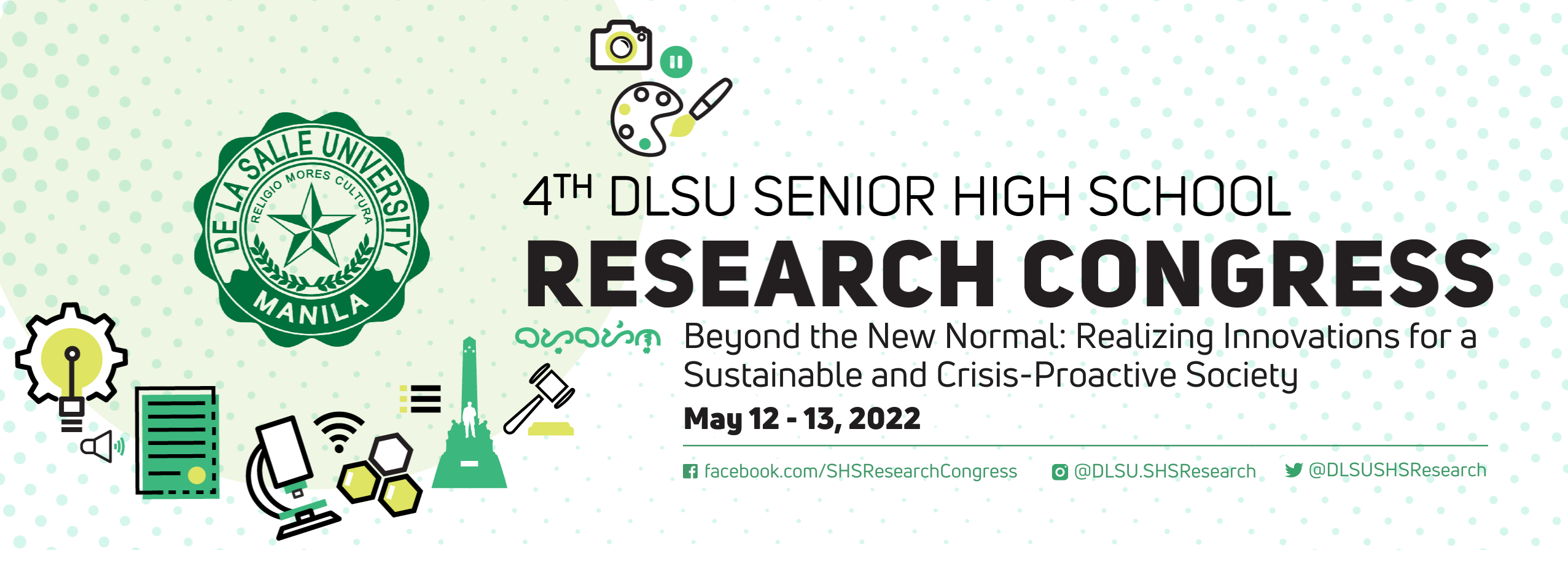Document Types
Paper Presentation
Research Theme (for Paper Presentation and Poster Presentation submissions only)
Socio-Economic and Political Landscape (SPL)
Research Advisor (Last Name, First Name, Middle Initial)
Topin S. Ruiz
Start Date
12-5-2022 1:00 PM
End Date
12-5-2022 3:00 PM
Abstract/Executive Summary
The Philippines has been no exception to the spread of the COVID-19 pandemic. In counteracting the transmission of the virus, rigorous statewide lockdowns were enforced; however, this resulted in the decline of economic activity. In the face of this hardship, Filipinos established “community pantries” — food banks established to alleviate the crisis of the ordinary Filipino. Some accuse it as an anti-government act and others claim it as a demonstration of Bayanihan spirit. With that, this study aimed to understand the characterization of the perceptions of the first-time SHS voters in Metro Manila regarding the abrupt emergence of the community pantries in the Philippines. A phenomenological qualitative design was utilized in this study. Focus group discussions (FGDs) were conducted with the SHS voters. Narrative analysis was used to interpret the answers of the participants. Due to the growing presence of community pantries, all participants were aware of its existence and generally agreed that pantries were a way of distributing equal resources to those in need during the pandemic. The participants also acknowledged the red-tagging of the initiative, calling such claims baseless. They further established that, given the shortcomings of the government, their votes could create change and alleviate the current sociopolitical climate of the Philippines through collective action. Overall, the community pantry phenomenon inspired the participants’ political participation and heightened their awareness regarding politics in the Philippines. Thus, they are then encouraged to address the current socio-political issues in the country, affecting their political participation.
Keywords
COVID-19; community pantries; political participation; first-time youth voters; Senior High School university students
Included in
Dude, pantry Chong!: Perception of first-time Senior High School voters of A.Y. 2020-2021 from universities in Metro Manila on the abrupt emergence of community pantries during the COVID-19 pandemic
The Philippines has been no exception to the spread of the COVID-19 pandemic. In counteracting the transmission of the virus, rigorous statewide lockdowns were enforced; however, this resulted in the decline of economic activity. In the face of this hardship, Filipinos established “community pantries” — food banks established to alleviate the crisis of the ordinary Filipino. Some accuse it as an anti-government act and others claim it as a demonstration of Bayanihan spirit. With that, this study aimed to understand the characterization of the perceptions of the first-time SHS voters in Metro Manila regarding the abrupt emergence of the community pantries in the Philippines. A phenomenological qualitative design was utilized in this study. Focus group discussions (FGDs) were conducted with the SHS voters. Narrative analysis was used to interpret the answers of the participants. Due to the growing presence of community pantries, all participants were aware of its existence and generally agreed that pantries were a way of distributing equal resources to those in need during the pandemic. The participants also acknowledged the red-tagging of the initiative, calling such claims baseless. They further established that, given the shortcomings of the government, their votes could create change and alleviate the current sociopolitical climate of the Philippines through collective action. Overall, the community pantry phenomenon inspired the participants’ political participation and heightened their awareness regarding politics in the Philippines. Thus, they are then encouraged to address the current socio-political issues in the country, affecting their political participation.


